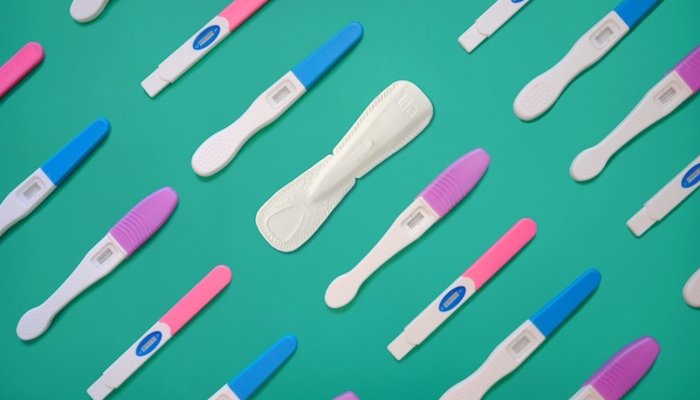
Today, Lia, the world’s first biodegradable, flushable, essentially erasable pregnancy test, hits the market.
This launch marks the first major innovation in the at-home pregnancy test space for over 30 years. “The 1980s brought us the first cellphone, the boom box, the Apple personal computer, and the at-home pregnancy test,” Edwards laughs.
She suspects that our pregnancy tests haven’t seen nearly as many iterations as our iPhones because, historically, the pool of female designers and engineers in the medical testing space has been small. “A lot of the patents in this space are attributed to men,” she says, whose idea of improving the pregnancy test has been to change the color of the test strip.
More recently, direct-to-consumer brands have started offering tests with more stylish packaging and discreet delivery options, but the fundamental product design has stayed the same. Millions of identical tests now sit in landfills (including, probably, the one your mom took, Edwards points out) and contribute to the growing waste crisis in the U.S.
Lia swaps the traditional plastic casings with a paper-based design that is strong enough to stay intact through manufacturing and shipping but natural enough to break down in soil or water in a matter of weeks. Once you use the thin, flexible test, you can flush it down the toilet, compost it in your backyard, or, depending on the results, choose to keep it around as a memento for shadowboxes or scrapbooks.
It took years for Edwards and Couturier to develop the product from scratch, get it approved by the FDA, and prove that it can return to the earth without leaving any harmful residue behind. But the way they see it, if Lia can make the pregnancy process a little easier on the planet—and the women who inhabit it—it will have been worth it.
“Inherently, the way these products are designed right now, if someone finds that plastic stick in the trash can, there are a lot of questions it can provoke. There’s privacy that is given up,” Edwards says. “I hope that [Lia] allows them to share their relief and their joy—or keep it private…I really hope that this empowers women.”
Source link




































